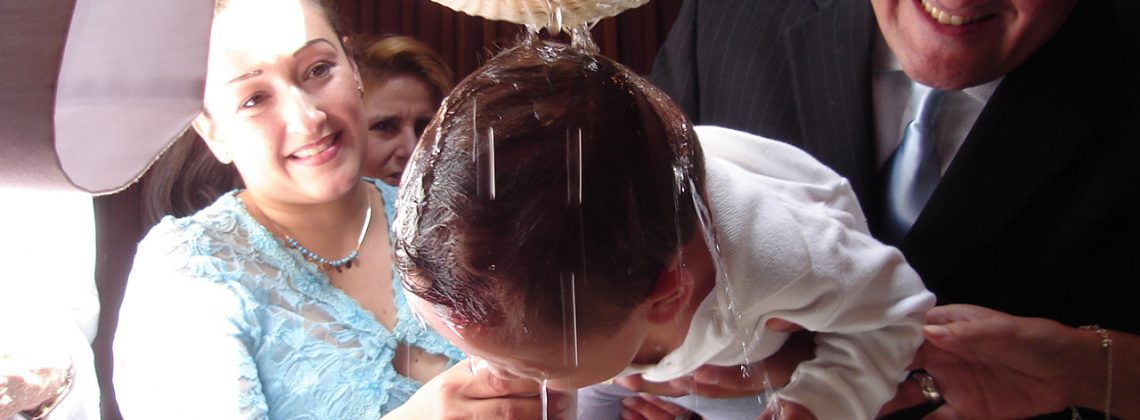

A Catholic priest has resigned after using the wrong formula while baptizing thousands of children. Here is The New York Times:
The Rev. Andres Arango was leading a baptism at St. Gregory Catholic Church in Phoenix last year when some people in the pews heard a slight variation in the religious ritual.
“We baptize you in the name of the Father and of the Son and of the Holy Spirit,” Father Arango said, his voice echoing in the church as he poured the holy water.
But there was a problem.
Saying “we baptize” was incorrect. The Vatican instructs priests to say “I baptize,” and if it is not said that way the baptism is deemed invalid.
Church leaders investigated and determined last month that Father Arango had incorrectly performed thousands of baptisms over more than 20 years, meaning those he had baptized in Phoenix and at his previous parishes in Brazil and San Diego were not properly baptized.
The oversight has caused headaches for those now seeking answers about whether their faulty baptisms have spilled over into other elements of their Catholic faith. For instance, would it affect those who were married by the church?
And the theologians weigh-in:
Adhering to the baptismal formula is “extremely important to continue the tradition of the Church,” said Neomi De Anda, a professor of religious studies at the University of Dayton in Ohio.
“It is not meant to be legalistic but about communion,” she added.
Indeed, the Diocese of Phoenix addressed the specific rules by creating an F.A.Q. section on its website about the case of Father Arango.
Just as a priest should not use “milk instead of wine during the Consecration of the Eucharist” — when the Catholic faith says that the wine becomes the blood of Christ — a priest should also not alter the wording of the sacrament of baptism, the diocese said.
The milk would not become the blood of Christ, the diocese said, and, similarly, a wrongly worded baptism would not purify a person.
Sandra Yocum, a professor of faith and culture at the University of Dayton, said that if a priest said “we,” it would imply that the source of the grace of the baptism came from the community, whereas saying “I” would correctly assert that “it’s God doing this work of grace” through the priest.
“In baptism, part of what makes it valid is the words that are used, and so that becomes significant,” Ms. Yocum said. Church officials might have been worried about setting a precedent if they suggested “these words are not that important,” she added.
The Congregation for the Doctrine of the Faith, a Vatican office that interprets doctrine and handles cases of misconduct, replied firmly when asked in 2020 if it was acceptable to use “we.”
Read the rest here.
As Virgil relates in the Inferno:
They have not sinned. But their great worth alone
was not enough, for they did not know Baptism,
which is the gateway to the faith you follow,
and if they came before the birth of Christ,
they did not worship God the way one should;
I myself am a member of this group.
For this defect, and for no other guilt,
we here are lost. In this alone we suffer:
cut off from hope, we live on in desire. (Inf. IV.33-42)
A merciful Archbishop would by fiat declare these “invalid”baptisms to be ex post valid if only to keep these unfortunate innocents out of the First Circle and in good standing in the Catholic Church. Absent that, some enterprising real estate developer will announce “Limbo” as a new planned community in Phoenix with special discounts for the victims and offers from Evangelicals to give them a get-out-of-the-real-Limbo Free cards.